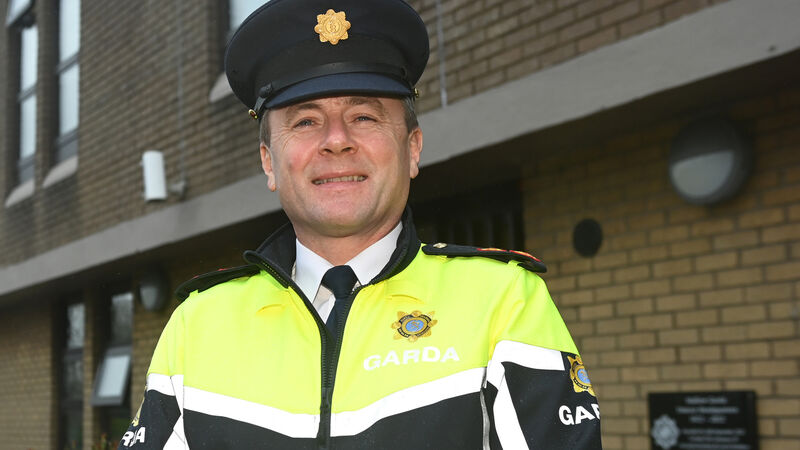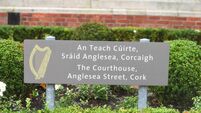Cork Superintendent warns people not to heed social media efforts to stir up protest

'I want to help people, not make life difficult for them': Garda Superintendent Gary McPolin at Mallow Garda Station where he took on his current role last December. Picture: Eddie O'Hare
It was just weeks after Superintendent Gary McPolin was appointed to his current role in north Cork when gardaí swooped on the homes of suspects in an early-morning raid in Mallow, Co Cork, puncturing a long-running family feud.
Some 70 officers, aided by the Defence Forces, Revenue Customs, and the Department of Social Protection, searched 17 locations in the area in January.
















